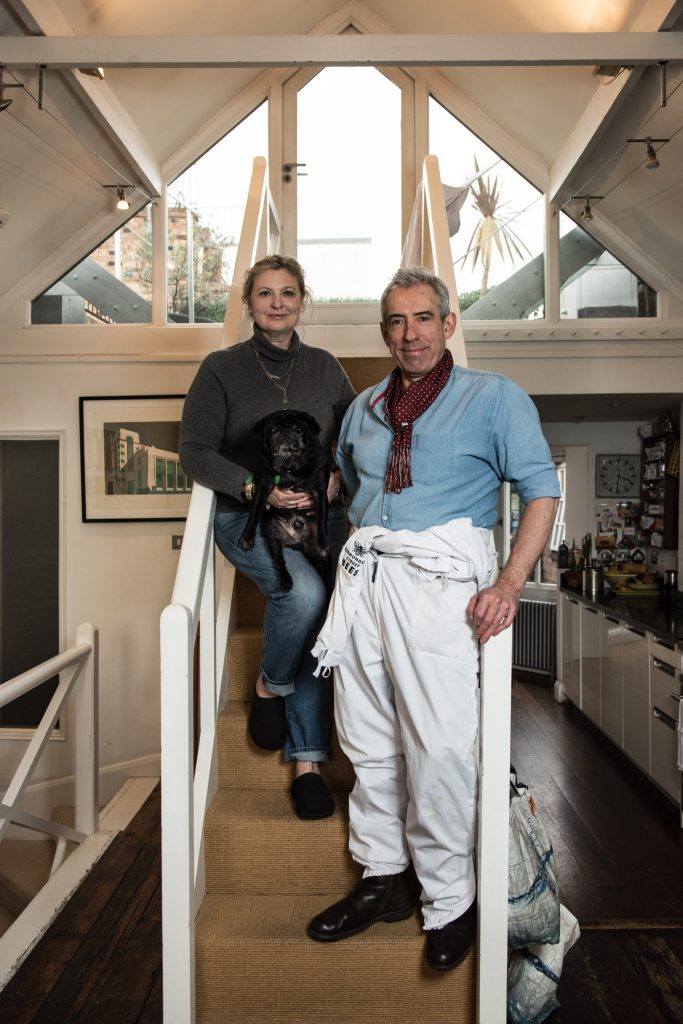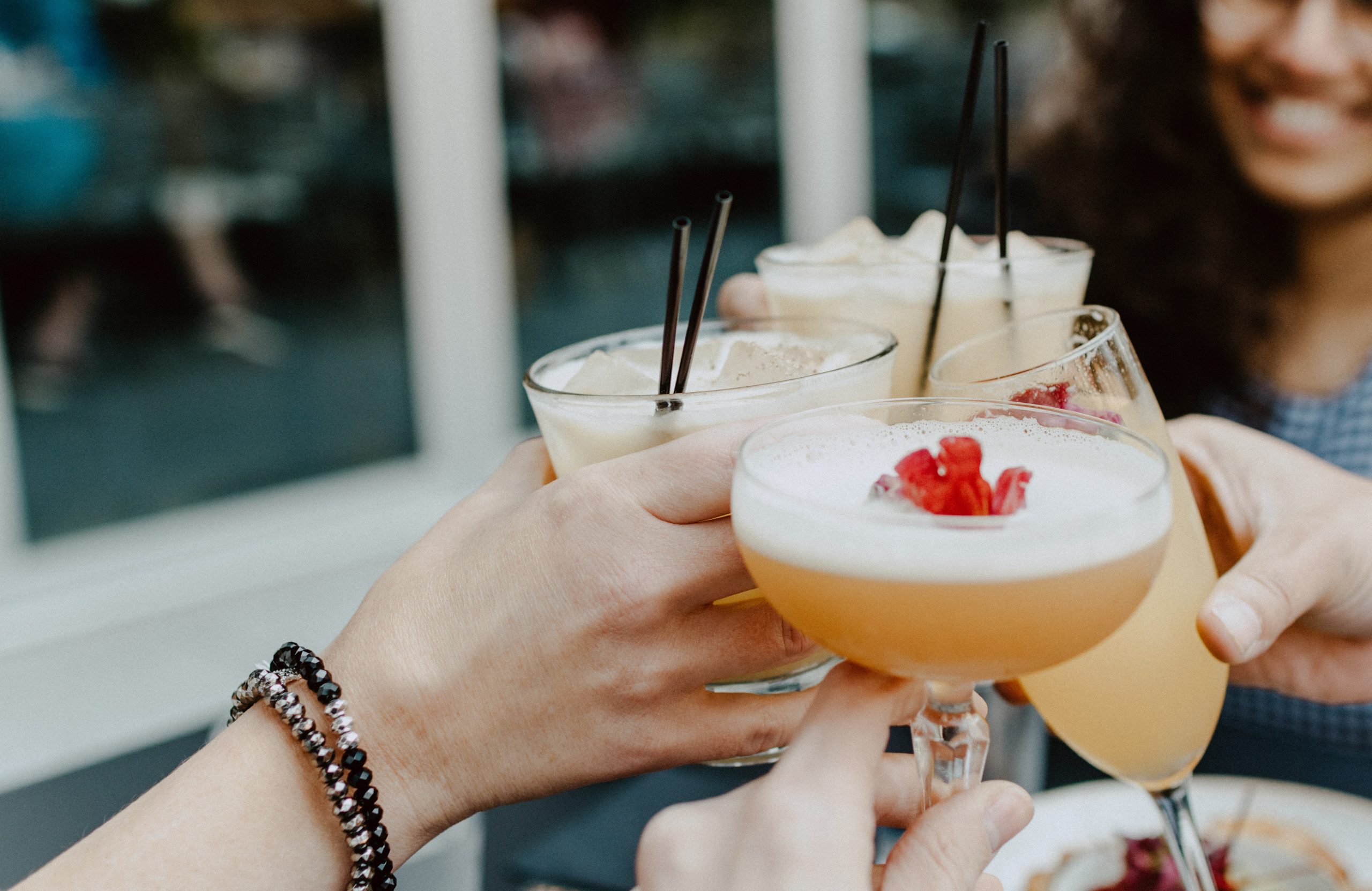Co-founder of award-winning sustainable beekeeping practice Bermondsey Street Bees, Sarah Wyndham Lewis is a professional Honey Sommelier. Trained in Italy she works with chefs, bartenders and local honey producers around the world. Appearing regularly in print and broadcast media, Sarah is also a Great Taste Awards Judge and a member of The Guild of Food Writers. FRANK’s Editor-in-Chief Melanie Sykes talks to her.
Sarah, tell us about your company Bermondsey Street Bees, which you own with your husband, a professional beekeeper. When did you start the company?
Sarah Wyndham Lewis: When my (then) stockbroker husband announced his intention to train as a beekeeper, I was not thrilled as I’m allergic to bee stings. However, as he became first a hobby beekeeper and later a professional, I became immersed in this world. If you are going to keep bees, you need to be 100% committed and that obsession hit us in parallel. Together with a joint commitment to sustainability.
Closely involved with the bees but unable to work directly on the hives, my interest in honey stepped right up. I’ve been a professional writer my whole working life, often involving food, and I come from a stock farming and wine-producing family. Analysing food and wine was second nature to me and became my frame of reference as I started to learn more about honey. Where is it from? Who makes it? How do they make it? What is the terroir?
All of those factors combine to make real kinds of honey as differentiated from each other and as much a product of their terroir as fine wines or olive oils.
You studied in Italy. Why did you go there to study in this area of expertise?
Sarah Wyndham Lewis: Italy is passionate about its beekeepers and the authenticity of its native types of honey. Bologna University is a world leader in agricultural, environmental and food science studies.
I jumped at the chance to train there. It’s an intensive and specific course, taken over three individual week-long stages. It was perfect (if extremely challenging!) for people like me already immersed in the world of bees and honey but wanting to advance their skills, mentored by some of the world’s greatest honey experts.
A very few, like me, take it forward to becoming a professional Honey Sommelier. Just like a wine sommelier, my work centres around authenticity, provenance, quality and connection with terroir.
Aside from the simple joys of good honey, the culture, art, science and global politics of bees, honey and the environment are all topics that require a lifetime of research. My practice, scope and teaching are ever-evolving.
Tell us about your love of natural unprocessed honey. How is it different from the flavour of mass-produced honey?
Sarah Wyndham Lewis: What I tend to call the ‘supermarket’ or ‘catering’ honey is the product of aggressive processing. They’re factory-made to order, to meet a specified price point and standardised colour and viscosity. The processing itself damages, changes and vitally diminishes the honey, both in flavour and in quality.
Along the way there are opportunities to adulterate, adding ultra-cheap sugar syrups to bulk out whatever honey is in the mix. So sophisticated are the adulterations nowadays that even the highest tech labs often cannot spot them, though a trained human palate can.
In contrast, real honey from a single source, gently extracted without superheating or micro-filtration, is a whole food, rich with natural enzymes, pollens and other micro-nutrients. Its components offer a world of authentic and complex flavour experiences.
The global trade in ultra-cheap blended honey threatens the environment very directly by depressing real beekeepers’ incomes to the point where it is no longer economically viable for them to keep bees and provide food crop pollination. So, buying raw honey as locally as you can, supports agriculture and local food security.
Could you tell us about the history of honey and how humans discovered it?
Sarah Wyndham Lewis: Honeybees have been on earth for around 88 million years. When protohumans emerged around 2.5 million years ago they were low-level scavengers and no other food on earth was sweet. Honey was mankind’s original luxury food and its impact on them was dramatic.
The sweetness we take for granted today in our fruits and vegetables is the outcome of selective breeding because our primitive encounters with honey set up a constant craving for sweet things that haunts us even now. So powerful was the effect of honey on emerging human brains that it set up a pleasure-centred neural pathway from our tongues to our brains which drives us to this day.
Honey’s natural medicinal properties (antibacterial, antiviral, anti-inflammatory, healing, soothing, beautifying) were also nothing short of magical and for millennia honey was viewed by humans as a “gift from the gods”, offering pleasure, nutrition, effective medicine and – vitally – trade goods. The monetary value of honey and beeswax materially helped emerging cultures to enrich themselves and evolve sophisticated civilisations.
Not surprisingly, honey and bees also became central to humans’ magic and religious ritual and are recurrent themes in countless sacred manuscripts and books, including the Koran, the Bible, the Torah and the Rig Veda.
Honey can be very expensive, like a good bottle of olive oil, wine or balsamic vinegar. When you are undercut by mass-produced stuff, is it hard to get people to pay more for the real thing?
Sarah Wyndham Lewis: Honestly, no. Never. Once people have had the opportunity to cross-taste real honey with the cheap supermarket blends, they never go back, especially once they understand the sustainability issues.
I often equate it with that moment when you discover the difference between drinking authentic coffee and against instant coffee granules! It’s an absolute revelation.
Talk to us about the vast range of honey. I was surprised to read that not all honey is sweet.
Sarah Wyndham Lewis: The highly differentiated colours, textures and flavours in honey relate directly to the land and soil from which they come, the plants the bees have gathered nectar from, the climate and the specific weather conditions of the time. The bees fly out in a distance of around three miles from their hive so their honey is a perfect ‘snapshot’ of that place and that time. Just like wine, every harvest will differ.
Not all honey is predominantly sweet. It can be incredibly bitter, tart or acidic. It can be vegetal, fruity, floral or savoury, simple or complex. There is such a thrilling world of flavours to explore. Funnily enough though, whilst a honey’s nose is always part of the analysis, it can often misdirect you as to the flavours you’ll encounter on your palate.
How do you work with chefs and bartenders?
Sarah Wyndham Lewis: Chefs and bartenders are all potential ambassadors for real honey. They have sophisticated palates, a passion for authenticity and sustainability. Yet so many have never even thought about the difference between that squeezy bottle of anonymously blended ‘stuff’ and the incredible world of authentic flavour that real honey brings to food and drinks. They are blown away when I run training sessions with them.
We have always sold most of our honey to chefs and bartenders, but my work as a professional Honey Sommelier has evolved way beyond our honey and outside the UK. It’s been an incredible journey; teaching and building networks to connect food and drink professionals across the globe with their local beekeepers and honey.
I have visionary clients driving and supporting my work, including Bacardi and other drinks brands, international hotel groups such as Relais & Chateaux who have an active and meaningful focus on sustainability. I also work for charitable foundations, trade missions, even government bodies. My relationships with local honey producers now span several continents, each with its own unique beekeeping culture.
I had no idea that my Honey Sommelier practice could ever expand like this; it’s fascinating, exhilarating and shows no sign of slowing down!
How have you observed climate change in your work?
Sarah Wyndham Lewis: Honeybees are immensely adaptable in terms of the plants they will feed on, so the effect of climate change has been slower to impact our beehives than it has been on the native wild bee species (such as bumblebees, solitary bees), who are much more selective feeders.
But over the past five years or so, we have observed an increasingly significant impact on the flowering seasons of the trees, bushes and herbaceous perennials that form the mainstay of honeybees’ food. Unpredictable weather patterns mean that flowering can happen out of sequence, or not at all. This means that honey yields have become extremely variable, with a steady decline observable from longer-term data.
As a sustainable beekeeping practice, we have always been focused on our bees’ welfare rather than on taking large volumes of honey. Our business has never been centred on honey income. Whilst commercially we can weather this decline of harvests, we have to be ever more vigilant of our bees’ health and we have reduced the number of hives we run rather than risk stressing either our colonies or the environment.
We are also talking to people about the absolute necessity of not overcrowding the environment with honeybees and promoting meaningful forage planting to support biodiversity amongst pollinators.
Follow Sarah Wyndham Lewis on Instagram at @honeysommelierlondon for regular updates and have a look at Sarah’s book ‘Planting for Honeybees’ by Quadrille/Hardie Grant for more details about her work.








